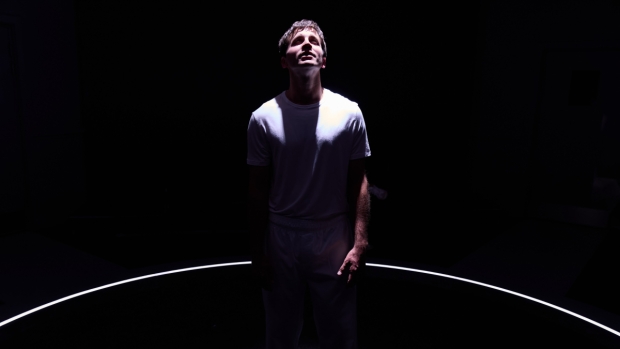9 Circles at Park Theatre and Edinburgh Fringe – review
Guy Masterson’s psychological thriller runs until 23 July in London and from 3 to 29 August in Edinburgh

© Mark Douet
Bill Cain's terse, tense thunderclap of a play premieres here trailing a slew of rave reviews from American productions: it's not hard to see why. This is as potent and unforgiving an examination of the collateral damage of war that you're ever likely to encounter. It's both forensic and deeply human, and a cracking piece of theatre. You'll need a strong stomach, but we live in a world where hiding one's head in the sand increasingly feels like the wrong moral choice.
Cain ingeniously uses the concept of Dante's circles of Hell from the Divine Comedy's "Inferno" section to process the story of a young American soldier accused of atrocious war crimes while in Iraq. If that sounds grim, well it is, but the invention of the writing and structure (a disembodied voice announces each ever more hopeless circle as the soldier's life is gradually picked apart), the excellence of Guy Masterson's production and the sheer quality of the acting ensure that this is more than just a horror-trawl through the underbelly of man's inhumanity to man. The play interrogates the question of who ultimately takes responsibility for things done in wartime – is it the soldiers on the ground, some of whom may be pre-damaged by life before they even see combat, or officials higher up the food chain – and does so with clarity and a sense of carefully controlled fury.
If the piece engages more on an intellectual than an emotional level, it's because what the soldier Reeves is accused of having done is so repulsive that it becomes increasingly hard, at least to this viewer, to sympathise with him, especially once the ambiguities of the situation begin to get stripped away. Joshua Collins, who previously played this role in New York, is painfully convincing, giving Reeves a slack-jawed, dead-eyed intensity that haunts as much as it unsettles.
The three other actors – Samara Neely Cohen, David Calvitto and Daniel Bowerbank – all play a couple of roles apiece and they are all spot on. The differences between the characters are very subtle which reinforces the impression that each figure may be a variation on a theme in Reeves's fevered psyche. Neely Cohen is particularly impressive as a pair of women who attempt to help him, or at least connect with him, and as a calmly implacable prosecutor.
Staged in the round, the production forces the audience to bear witness as much as just observe (indeed, in the courtroom scene – or circle – you may find the prosecutor or defence attorney directly addressing you, particularly if you're on the front row): non-engagement is not an option. A clinical central disc (design: Duncan Henderson) is the only set but a myriad of moods and locations is conjured up by Tom Turner's truly stunning lighting, and a moody but unobtrusive soundscape by Jack Arnold.
The play is perhaps a little long: despite the brilliance of Collins' performance, the final death scene feels unnecessarily protracted, and the only time when the text verges on exploitative. It's never an easy watch, but it's an essential one. Disturbing, infuriating and often downright horrible. Also, highly recommended.












